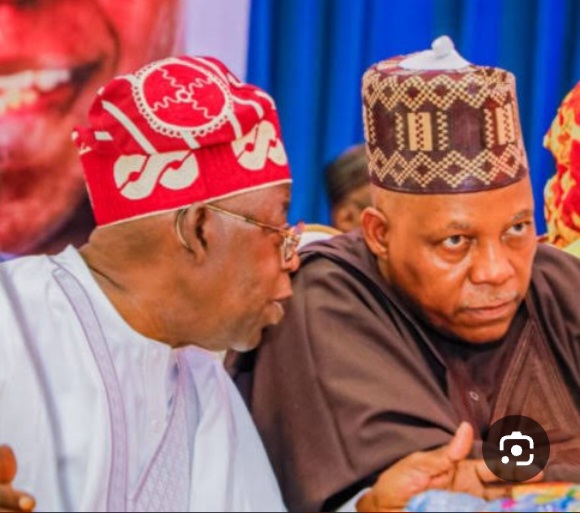By Ali Mamman Shuwa, Maiduguri
As Nigeria gradually approaches another watershed moment in its democratic journey, conversations across political corridors, media platforms, policy think tanks, and public fora have increasingly shifted toward the trajectory of national leadership post-2027. Central to these deliberations is the prospect of continuity in the Tinubu-Shettima administration—a vision many interpret as essential for policy consolidation, systemic reform, and long-term national renewal.
Since their decisive mandate under the All Progressives Congress (APC) in 2023, President Bola Ahmed Tinubu and Vice President Kashim Shettima have embarked on a transformative governance agenda. Through targeted reforms in economic policy, national security, power sector revitalization, and institutional strengthening, the administration has sought to recalibrate Nigeria’s development architecture amidst daunting structural challenges.
While macroeconomic volatility, inflationary pressures, and youth unemployment remain persistent concerns, proponents of the administration argue that foundational progress has been made. They maintain that the Renewed Hope Agenda has initiated a strategic shift that requires sustained leadership and policy consistency to attain full fruition.
For Vice President Shettima an accomplished technocrat and former two-term Governor of Borno State the continuity discourse transcends political ambition. It resonates deeply in the Northeast, particularly in Maiduguri, where citizens see his political ascendancy as both symbolic and substantive.
> “He knows our pain, our history, and our hopes,” reflects Malam Ibrahim Musa, a community elder in Gwange. “Having him in Abuja isn’t merely political—it’s a form of representation, a conduit between the grassroots and the federal centre.”
Indeed, for many constituents in the conflict-affected Northeast, Shettima represents more than a vice presidency. His presence in the nation’s leadership architecture embodies resilience, regional inclusion, and institutional memory—attributes deemed vital to the national project.
Under the aegis of the Renewed Hope Agenda, notable policy undertakings include the reactivation of the national student loan scheme, intensified foreign direct investment (FDI) engagements, robust digital economy interventions, and a renewed focus on infrastructural modernization. These initiatives, while at various stages of implementation, signal a deliberate attempt to depart from ad hoc governance toward a more structured and vision-driven developmental pathway.
Nevertheless, the opposition—particularly the Peoples Democratic Party (PDP) and the Labour Party (LP)—caution against equating continuity with progress. They argue that transformative leadership demands innovation, not inertia, and highlight enduring regional disparities and economic hardship as indicators of systemic underperformance.
Despite these critiques, APC loyalists remain adamant that the 2027 electoral cycle presents an opportunity not for disruption, but for consolidation. According to Hon. Ibrahim Abubakar, a Borno-based political analyst, “Nigeria has suffered from abrupt transitions and policy reversals. Sustained leadership under Tinubu and Shettima provides the institutional memory, strategic coherence, and political will necessary to deliver long-term gains.”
As the political horizon remains fluid and the journey toward 2027 unfolds, one truth becomes increasingly evident: the Tinubu-Shettima administration has reignited vital national debates about leadership, legitimacy, and the future of democratic continuity.
For many Nigerians—particularly those in historically marginalized regions—the 2027 contest is more than an election. It is a referendum on whether the nation will deepen its democratic evolution or once again succumb to the perils of political discontinuity. The stakes are high, and the implications, profound.




